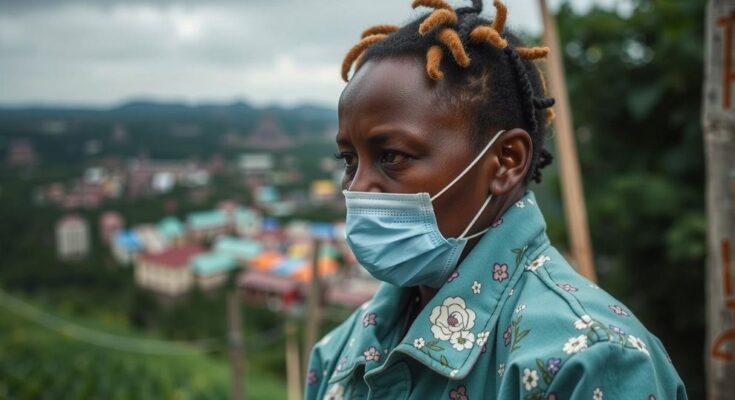Recent reports indicate a mystery illness, ‘Disease X’, in the Democratic Republic of the Congo has caused over 70 deaths, predominantly among children. Symptoms appear similar to flu-like ailments, necessitating diagnostic testing to clarify the illness’s nature and transmission. The limitations of healthcare infrastructure in the region pose further challenges in managing the outbreak and preventing potential epidemic escalation.
Public health officials are gravely concerned about a recent outbreak of an unidentified illness in the Democratic Republic of the Congo (DRC), which has resulted in over 70 fatalities. This outbreak, primarily located in the Panzi health zone of Kwango province, has been tentatively classified as ‘Disease X,’ with nearly half of the reported cases involving children under five years of age. Symptoms observed, which include fever, headache, cough, and anemia, could indicate a potential respiratory ailment, but definitive laboratory results are still awaited, as stated by Jean Kaseya, head of the Africa Centres for Disease Control and Prevention.
The lack of diagnostic information renders the situation precarious as health officials have yet to ascertain the illness’s transmissibility or infectious nature. Furthermore, the DRC faces significant challenges due to its vast geographical area, poor transportation infrastructure, and limited hospital facilities, which complicate the response efforts required to manage this health emergency effectively.
Experts Dr. Peter Hotez of Baylor College of Medicine and Dr. Gavin Harris from Emory University emphasize the importance of diagnostic testing to rule out common diseases such as malaria, meningococcal infections, or newer viral threats including coronaviruses or zoonotic influenza. They also highlight that such instances of mysterious illnesses are relatively common, particularly in underserved regions, as the public health surveillance system in the DRC is not as developed as in more industrialized nations.
With regard to the potential for this outbreak to escalate into an epidemic, the experts express caution. Hotez notes that various factors must be understood, including the availability of treatments or vaccines for the pathogens involved. Harris reiterates that the potential for this outbreak to grow remains uncertain. Nonetheless, they underline the need for improved public health measures in the region, particularly hygiene, clean water access, and adequate health care to combat future outbreaks effectively.
The Democratic Republic of the Congo (DRC) has been the source of various infectious diseases, leading experts and epidemiologists to monitor the region closely. The current outbreak, labeled as ‘Disease X’ due to the lack of specific identification, raises significant public health concerns, especially given its high mortality rate and the vulnerable demographics affected, primarily young children. The DRC’s limited health infrastructure further complicates response efforts, making it essential to understand the origins and nature of this illness promptly.
This emerging health crisis in the DRC underscores the urgent need for enhanced public health measures and infrastructure improvements. There is a palpable risk that the situation could worsen without timely intervention and robust diagnostic capabilities. Continuous monitoring and responsive healthcare strategies will be critical in managing current and future outbreaks to safeguard public health in the region.
Original Source: www.usnews.com




